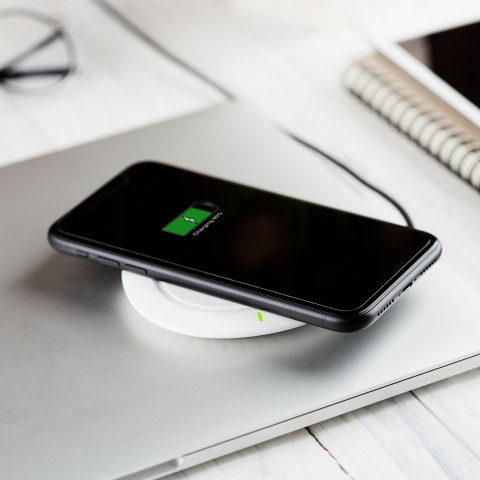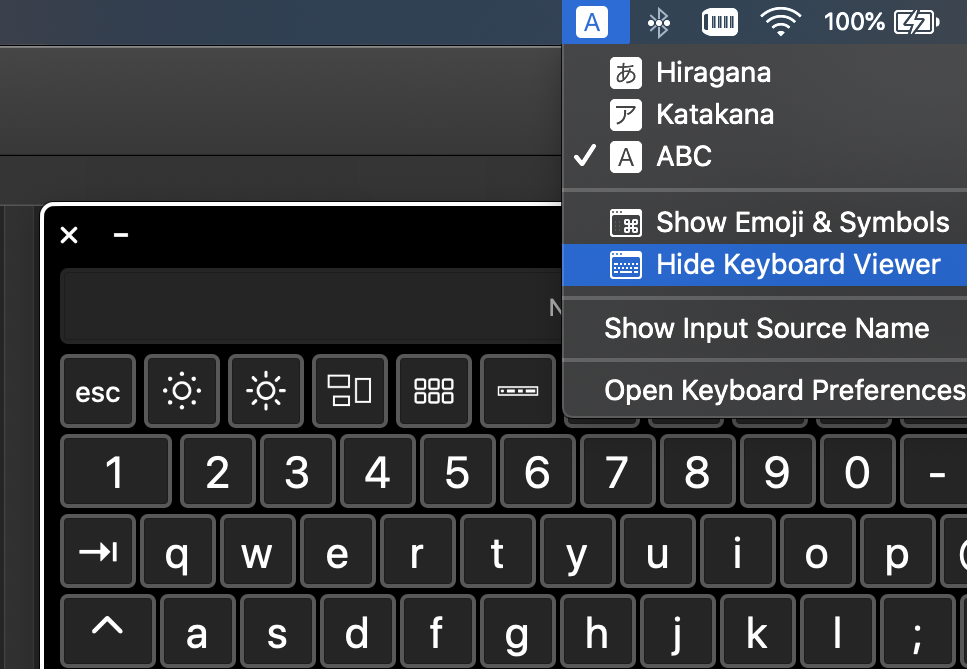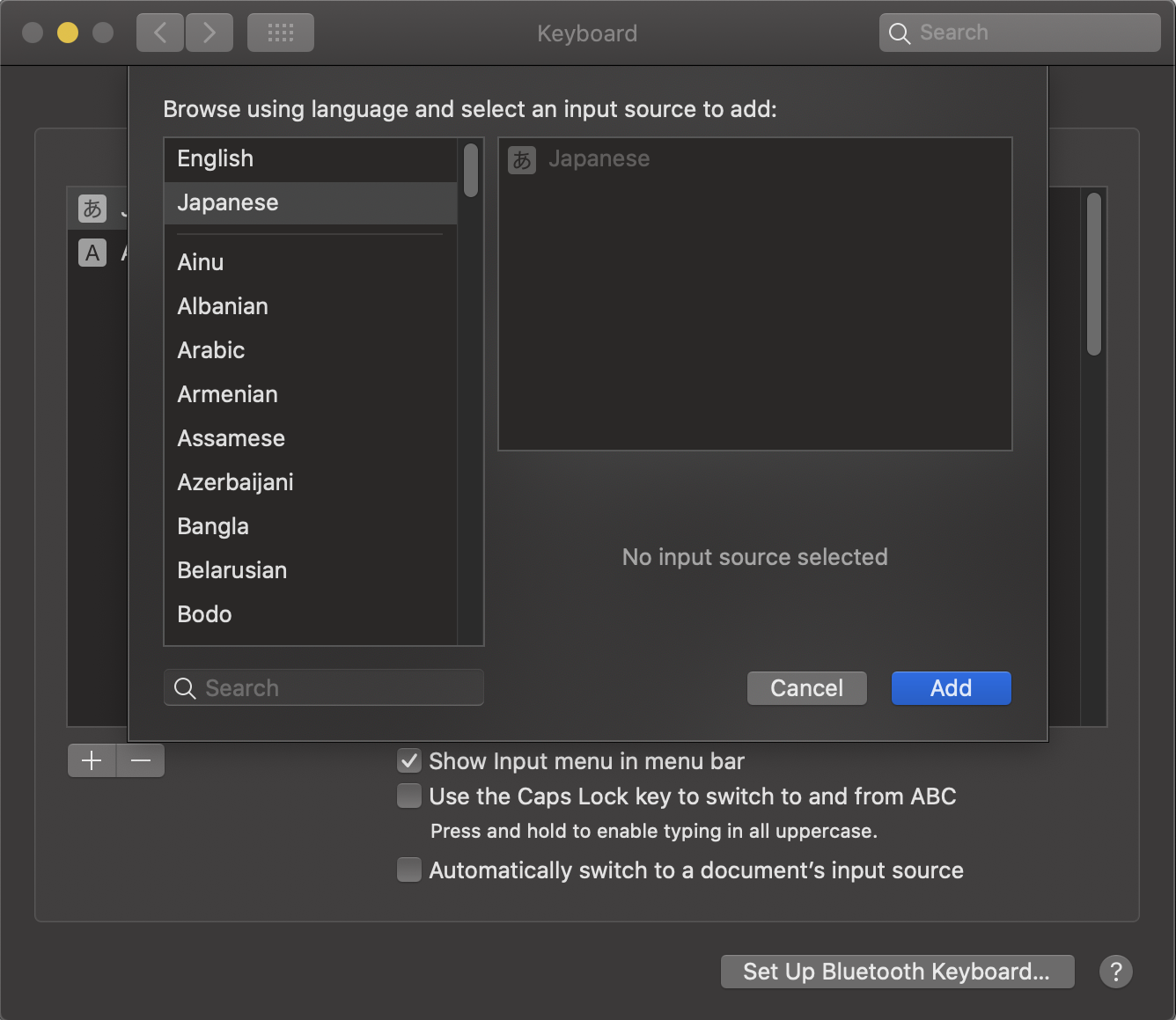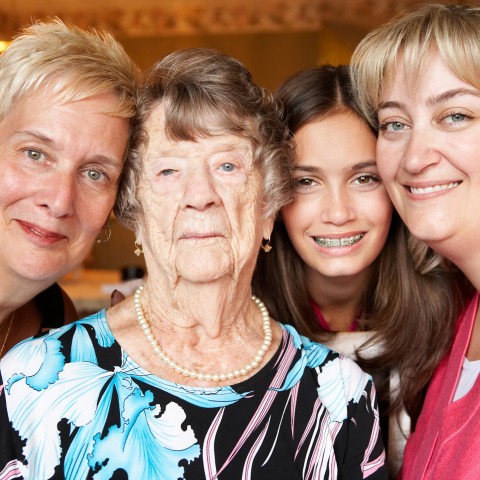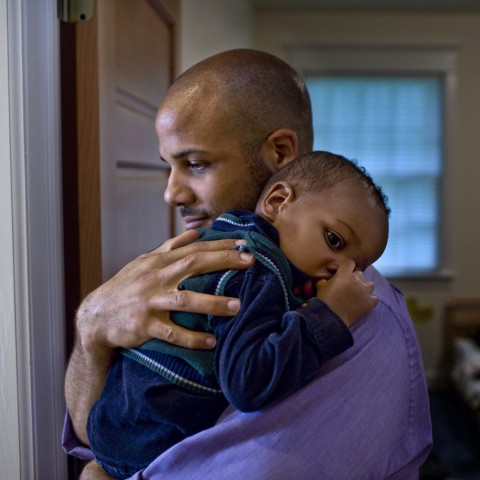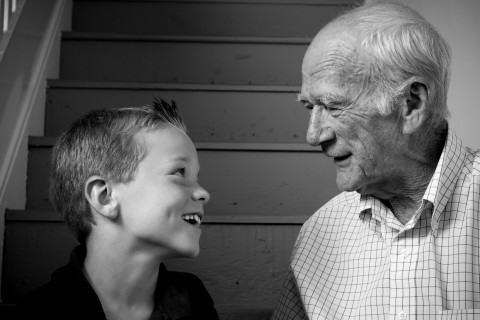
Hoe lank neem dit om Afrikaans te leer? (How long does it take to learn Afrikaans?)
Well, it’s not possible to tell this with 100% accuracy, because the speed of one’s learning progress depends on a few variables.
Any answer to this question should probably start with the sober truth, though, which is that learning any new language (at least to a level of reasonable proficiency) normally takes many hours of study and practice. That’s simply the nature of language studies.
Of course, one can speed up the process with good learning tools and study habits. But mastering it overnight or in only a couple of weeks from scratch? That only happens in the movies.

But don’t be discouraged! It is possible to be a winner at learning Afrikaans—in less time than you probably think, and also with a lot of enjoyment along the way. The secrets to learning while having fun include…well, you’ll have to read on for those.
You should also keep reading to find an approximate answer to our earlier question. Maybe you need an indication of how long it would take to learn Afrikaans for personal reasons. Or perhaps your employer, an employment agency, or a learning or government institution needs to know. No problem! This post is definitely for you, too.
I’ll start with pointers regarding Afrikaans proficiency level tests, as your existing Afrikaans skills will determine how long you’ll need to keep learning to reach your goal. If you don’t know any Afrikaans, you can probably skip to the next part, where I will share other important influencing factors worth noting.
To conclude, I’ll briefly discuss a number of skill-level descriptors for the three basic proficiency levels, as well as appropriate learning tips for each level.
 Table of Contents
Table of Contents
- Proficiency Exams and Tests
- Which Factors Will Influence Your Afrikaans Learning?
- Beginner, Intermediate, and Advanced & How to Learn Afrikaans Fast!
- Conclusion
1. Proficiency Exams and Tests
If you’re in the dark regarding your current Afrikaans skill level, no problem! You can easily enlighten yourself by taking an Afrikaans proficiency-benchmark test. Some of these are pricey, but they tend to be comprehensive and give detailed reports. Others are free self-assessments that should give you a basic indication of your ability.
- The University of Central California offers a written exam through their Foreign Language Achievement Testing Service (FLATS). It is worth noting that this costs money, though it is less expensive than some other options.
- Or, consider doing an Oral Proficiency Interview, which is conducted over the telephone. It’s offered by the American Council on the Teaching of Foreign Languages (ACTFL), and it’s one of the oldest international proficiency tests on offer. Also be sure to read Your Best Guide for Easily Passing the OPI Afrikaans Exam on AfrikaansPod101.com for additional information on this test.
- If you don’t want to spend money, you could always assess your skills yourself, using the guidelines from either the Interagency Language Roundtable (ILR)‘s or the ACTFL‘s skill-level descriptors.
Alternatively, you can complete the ILR’s downloadable and easy self-assessments for speaking, reading, and listening. This option is also free of charge.

Or, you might want to consider enrolling in the Premium PLUS program from AfrikaansPod101, which starts with an online Level Assessment Test. The test results not only indicate your level of Afrikaans-language abilities—they’re also used to personalize your training. You’ll furthermore be assessed continuously along the way!
Good, now that you’ve determined your Afrikaans proficiency level, let’s discuss other factors likely to determine how long it will take to learn Afrikaans.
2. Which Factors Will Influence Your Afrikaans Learning?
So, how long will it take to learn Afrikaans? As said, this is really difficult to qualify, simply because it depends on a number of variables. Following are the most prominent ones to consider:
2.1 Your Needs
Why do you want to learn Afrikaans? For pleasure, work, or because you need to argue politics with your Afrikaans friends or colleagues?
Depending on your existing proficiency, Beginner Level Afrikaans should be okay if you require some Afrikaans knowledge for your travels through South Africa and/or Namibia. If you’re in business and simply want to understand the discussions of your Afrikaans business partners after meetings, Intermediate Afrikaans should do.
Obviously, these two levels will take less time to master than, for instance, Advanced Level Afrikaans, which is where your proficiency would need to be adequate for high-level conversations.
Being clear about why you’re learning the language will affect your commitment to your studies, as well as the time you’re willing to spend on them.

2.2 Aptitude, Attitude, and Age
These three factors are indicators of what the Common European Framework of Reference for Languages (CEFRL) calls your “existential competence“ for learning a new language. This, in turn, will affect the length of your studies.
Determine your competency by considering the following:
- Aptitude: Are you fluent in more than one language? Were you raised bilingually? Did you show an aptitude for languages from an early age? What is your existing level of education? Do you know how to use a bilingual dictionary? Are you internet-, computer-, and smartphone-literate? Answering these questions will give you an indication of the ease with which you’ll be able to handle new information.
- Attitude: How motivated are you to study? How bold are you in your approach to learning? The student who learns effectively is willing to take risks and initiative in their learning process. For instance, they’re willing to approach a stranger to chat in Afrikaans and are okay with making mistakes when conversing with a native speaker.
- Age: If you haven’t studied for years, it may influence how long it takes you to learn Afrikaans. However, if this is really a concern—do not worry! It’s possible to stretch and exercise rusty cerebral muscles at any age. (In fact, it’s advisable! Research has suggested that learning a new language could be one of the best ways to rejuvenate gray matter.)
2.3 Your Native Language
If you’re a native English and/or Dutch speaker, you’re in luck. These are historically West-Germanic languages, so they have the same linguistic roots. (This is truer of Old English; Modern English is much more creole.) This matters because Afrikaans is mostly derived from Dutch.
Research has demonstrated that English and Dutch natives should be able to acquire Afrikaans much faster than native speakers of Mandarin or Hebrew, for instance. The Foreign Service Institute (FSI) has been the center of foreign-language training for the U.S. government for approximately a century now. Drawing on their studies and training experience, the Institute calculated the time it would take for a native English speaker to master any language to the standard of a European highschool student of foreign languages. (This is a level close to AfrikaansPod101’s Level 3 or 4.)
The Institute organized their data regarding European languages into four categories of difficulty. Those listed in Category I, including Dutch, will take approximately 24 to 30 weeks to master, according to the FSI. Since Dutch is the root language of Afrikaans, the time it would take to master is therefore comparable.

2.4 Study Method
Your study method will also influence the length of time it could take you to master Afrikaans. Different methods include:
- Self-study and practice.
- Attending regular classes or taking classes with a private language tutor (virtual or otherwise).
- A trusted, established online learning platform (such as this one) with plenty of study material and tools to help you progress from one level to the next.
Each method has limitations that could create stumbling blocks for effective learning. I would suggest that you take control of your learning process by combining methods 1 through 3, if you want to learn Afrikaans fast and effectively.
Let’s take a look at how this can be done.
3. Beginner, Intermediate, and Advanced & How to Learn Afrikaans Fast!
These three basic language levels are normally subdivided for better discernment of your abilities. These subcategories might include Absolute Beginner, Beginner, Intermediate, Upper-Intermediate, and Advanced.
In the following sections, you’ll find elementary pointers for speaking proficiency based on ACTFL guidelines.
3.1 Beginner Afrikaans

Reaching the higher end of the Beginner Afrikaans level will probably take between 80 to 100 hours of class time and practice.
| Basic Level Descriptors: At this level, you have zero to elementary Afrikaans ability. You know or can do the following (or less). Speaking: Your vocabulary is limited to immediate survival needs; you can respond to simple questions and can ask memorized ones, but are understood only with difficulty by native speakers. You cannot partake in conversations. At the high-novice level, you are, for instance, able to introduce yourself like this: Ek is Maria Ricci. Ek is Italiaans. (“I am Maria Ricci. I am Italian.”) Reading and Writing: You can read and write lists and notes with single words and short sentences, and can fill out simple forms. Listening: You can understand simple key words and phrases in context, as well as memorized, well-known commands and questions such as: Wat is jou naam? (“What is your name?”) |
Tips to Boost Beginner Learning
Nobody is born able to speak a language. As we grow and develop, we learn it through observation, repetition, and play. This is a brilliant formula to copy as you learn to speak Afrikaans!
- For instance, listen to native Afrikaans speakers as they talk and observe their lips and mouth as they pronounce words. You can do this either in person or by watching a recording such as this YouTube video. Through visual and aural observation, you’ll learn how certain sounds are formed.
To cover repetition, you could use a language app (like this one) on any mobile device. Listen to and repeat vocabulary and short phrases out loud when you’re driving alone, for instance, or listen to recordings like a podcast over and over again on the bus or subway. (A podcast is called a potgooi in Afrikaans, and it literally means “to throw a pot”!) You could also make your own flashcards with key vocabulary and important phrases, to be kept with you and practiced out loud as often as possible. Do it in front of the mirror for best results!

- Also, download language gaming apps for kids and play away—on the subway or bus, during tea breaks, over weekends—any moment you have free time and need to relax a bit!
However, it would be best not to do this on your own. As I suggested earlier, enrolling with an established online language learning platform is likely to speed up your learning considerably. For instance, take a look at this bite-sized lesson for Absolute Beginners (only three minutes long!) to learn the basic vocab and phrases you need for self-introduction. What elevates our platform from the common offering on the Net is that it gives you much more than merely a recorded dialogue.
In addition to hearing how Afrikaans natives introduce themselves and being able to read the dialogue vocabulary in a downloadable PDF, you also get access to lesson notes on how to use what you learned in a cultural context, as well as complete, downloadable lesson transcripts. As if that’s not enough, you also get access to flashcards and a slideshow with each lesson, plus the option to test yourself with a quiz.
Impressive, eh?! What I also really like is that the enrollment costs don’t break the bank and the platform offers several upgrade options (also at reasonable prices).
3.2 Intermediate Afrikaans
As mentioned, to reach a high-intermediate level of Afrikaans could take you between 24-30 weeks.
| Basic Level Descriptors: At this level, you have some Afrikaans proficiency. You know and can do the following (or slightly less). > Speaking: You can easily converse about routine tasks and familiar topics in social situations with people of similar Afrikaans abilities. You can describe and narrate in all major tenses, but not all the time. You’re understood by native Afrikaans speakers unaccustomed to non-native speech, although your mistakes will be evident. You would, for instance, probably get the Afrikaans double-negative wrong: Ek is nie honger. ❌ / Ek is nie honger nie. ✅ (“I am not hungry.”) > Reading and Writing: You can meet practical needs, such as reading and writing simple and short messages, letters, and notes. You can ask and respond to simple questions in writing on topics limited to personal or social needs. > Listening: You can understand medium-length sentences on familiar, everyday topics. You understand one utterance at a time in one-to-one conversations, as well as simple announcements and messages. You rely heavily on paraphrasing, restatements, and contextual clues. You are, for instance, able to understand announcements like this: Ons sal vertrek om agtuur moreoggend. (“We will leave at eight o’ clock tomorrow morning.”) |
Tips to Boost Intermediate Learning
Don’t ditch the observe, repeat, and play activities of the Beginner Level! Simply increase their difficulty by a notch or two.
Also, by now your Afrikaans reading proficiency should be better. Still in the spirit of playfulness—why not read Afrikaans children’s stories? Start with very easy ones, such as those made available by the South African national government’s Department of Basic Education. They’re completely free and available in downloadable PDF form.
- ‘n Groot boek met kort stories (“A Large Book with Short Stories”)
- Die Dieresportdag (“The Animal Sport Day”)
Also explore the links on this site for more free storybooks. Read them out loud to your tutor or to a native Afrikaans friend who can check your pronunciation.
Verna Vels wrote timeless and wonderful Afrikaans children’s books, as does Philip De Vos, so be sure to look for their work. However, we have excellent translations of books by the beloved Dr. Seuss and Richard Scurry as well. Challenge your limitations by listening to Afrikaans children’s stories and repeating them in Afrikaans to a (preferably native) Afrikaans speaker.
By now, a good language school or online learning platform will have introduced you to some grammar too. A great example of what you can expect in this regard is the AfrikaansPod101 lesson Mind Your Manners in South Africa. You’re presented with a culturally relevant dialogue introducing the topic, to which relevant vocabulary, cultural insights, and a lesson about the basic Afrikaans sentence structure are added. All of this is available as an audio or PDF download, too. Really a great deal!

Studeer Afrikaans enige plek, enige tyd. / “Study Afrikaans any place, any time.”
3.3 Advanced Afrikaans
To reach this level in Afrikaans will probably take you between 50-60 weeks, depending on your study methods.
| Basic Level Descriptors: At the advanced level, you have good Afrikaans proficiency. You know and can do the following (or slightly less). > Speaking: You can easily participate in conversations on diverse topics. You use descriptions and narration in all the major tenses, and can handle situations of unexpected complexity with ease. You have a good generic vocabulary and are easily understood by native speakers. > Reading and Writing: You can write routine informal (and some formal) correspondence, plus factual narratives, descriptions, and summaries. You use all the major tenses in narration and description, and can paraphrase for clarity. You demonstrate good control of generic vocabulary and are understood even by natives not used to non-native writing. > Listening: You can understand the main ideas in conversations of personal nature or about a variety of general-interest topics (e.g. the news, instructions, anecdotes, etc.). You compensate for any limitations by using real-world knowledge and contextual clues. |
Tips to Boost Advanced Learning
At this level, you should be able to communicate with relative ease in Afrikaans, which will expand your scope of learning opportunities. Now it would benefit you to expose yourself as much and as often as possible to situations where Afrikaans is used by natives.
If possible, watch Afrikaans TV and movies on Showmax, an online video-streaming service similar to Netflix. (Also refer to our articles Showmax South Africa and Afrikaans Movies & Shows and Popular South African TV Shows to Help You Learn Afrikaans! for lists of must-watch shows.) Some movies and shows have English subtitles.

Kyk Afrikaanse rolprente met én sonder onderskrifte. / “Watch Afrikaans movies with and without subscripts.”
As you approach the advanced level, you should cement your understanding of compound sentences and expand your vocabulary. AfrikaansPod101 has plenty of lessons that can help you do this (like this one on the Top 10 Activities in South Africa). These lessons follow the same format: a dialogue with relevant vocabulary, lesson notes with cultural insights, plus a downloadable transcript.
Don’t stop reading, though! A host of brilliant Afrikaans writers is just waiting to be discovered.
- Dip your toe into the waters of excellent Afrikaans fiction, such as the crime novels from the keyboard of Deon Meyer—erstwhile journalist-turned-bestselling-author. His books were translated into many languages and a couple even made it to the big screen.
- Remember the Oscar-winning film Tsotsi from 2006? Read an Afrikaans translation of the book the movie was based on, by one of our greatest authors and playwrights, Athol Fugard.
- I don’t love reading romance novels; they’re a bit sentimental for my taste. Yet, the likes of Ena Murray, a prolific romance writer, used to be very popular. She’s no Charlotte Brontë—think more Daphne du Maurier—but her work is easy to understand. Eleanor Baker and Maretha Maarten’s novels are also from a bygone era but still popular. For more modern female fiction, consider books by Chanette Paul, as well as award-winners Sophia Kapp and Marita van der Vyver.
- Nataniël is one of the most prolific South African artists. He’s a popular singer-songwriter, comedian, fine artist, kitchenware designer, chef, published author, and TV personality! This hugely talented performer’s short stories and poetry are favorites too, also very entertaining. Previously-mentioned Philip de Vos is another Afrikaans author who delivers absolutely delightful comedic limericks and poetry for adults.
- Lovers of serious poetry, take a moment to enjoy the work of Petra Müller (Winderige Lente / “Windy Spring” is a personal favorite); Ingrid Jonker; Antjie Krog; and newcomer Koleka Putuma.
For non-fiction, consider reading Afrikaans online newspapers and magazines. Or get busy on Afrikaans biographies of our luminaries, such as ‘n Lang Pad na Vryheid (“A Long Road to Freedom”), an autobiography by Nelson Mandela. Alternatively, choose any topic of interest and search online for an Afrikaans book on it. (Our botany is beautiful and diverse, and of particular interest in this regard. For instance, the fine bush, or fynbos, is native only to this country.)
For interesting non-fiction podcasts, consider Jacques Bassons’s Klipkouers (Lit. “stone chewers”), or Willim Welsyn’s Wat (“What”), and Bouer Bosch’s Narratief (“Narrative”).
3.4 Master it Faster: How to Learn Afrikaans Fast!
Wondering how to learn Afrikaans faster? No matter your current level, applying one or all of the following principles is guaranteed to turn your studies into a fun activity every day. Enjoyment should also speed up your Afrikaans learning.
Keep it Playful!
A popular quote about the importance of play for learning has been doing the rounds for ages. It’s attributed to child-development expert Dr. Karyn Purvis, who allegedly said:
“Scientists have recently determined that it takes approximately 400 repetitions to create a new synapse in the brain—unless it is done with play, in which case, it takes between 10 and 20 repetitions!”
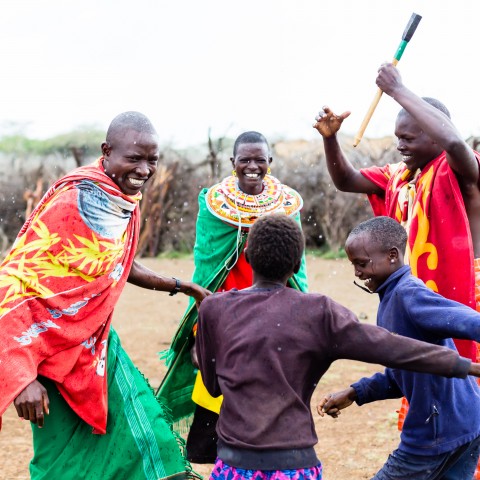
In alle kulture was spel was nog altyd een van die beste leerwyses. / “In all cultures, play has always been one of the best ways to learn.”
As much as I want this to be true, I cannot find any scientific substantiation for this claim. Apparently, Purvis did say this, but she took the source for the quote with her to the grave, according to her colleagues.
Yet, in many indigenous cultures, it’s implicitly understood that children learn best during play, which is why they are seldom barred from adult activities. This is the experience of any parent too, worldwide! It’s furthermore a quality we never lose, because adults tend to enjoy playful activities much more than classroom-style education or training. This enjoyment helps us to focus better and it amps up our motivation to study.
As said, online gaming is a great way to play and learn. Consider, for instance, this vocabulary builder with its simple audio and reading games, suitable for Beginner and Intermediate learners.
It would be even better to create your own fun, though!
Keep it Creative!
In order to play, you’ll need to flex your creativity muscles. This can be easily accomplished these days! For instance, record yourself reading, singing, or acting in Afrikaans and perhaps start your own YouTube channel—just for fun! This could also be an interesting way to record your progress.
Alternatively, create an Afrikaans card game with vocab flashcards or design a board game, for instance.
Creative writing in Afrikaans is another option. Keep it super simple at first by making drawings of Afrikaans vocabulary that makes up a story — think comic strip.
You could also paint, draw, or digitally decorate that Afrikaans poem or inspirational quote you want to memorize. Hang your artwork in a prominent location.
Or, go old school by creating simple Afrikaans greeting cards for friends or family. Think of cutting letters from magazines or newspapers to form the words, for instance. The possibilities are endless—the only secret is to keep it fun and engaging.
Study with a Buddy!
Shared experiences are always more enjoyable and motivating, so try to study with a friend. Or, search the Net for an online conversation buddy. Read Afrikaans to one another, create silly Afrikaans recordings together—have fun!

Studeer Afrikaans saam met vriende vir beter resultate! / “Study Afrikaans with a buddy for better results!”
Bravo to the Binge!
Binge-watching Afrikaans TV series, movies, and shows, and regularly listening to good-quality Afrikaans music are excellent ways to train your ear to the natural sound of the language. These activities will be especially good for Intermediate students who want to amp up their learning. It’s also fun! Create a playlist of your favorite Afrikaans music (there are loads of songs on YouTube, iTunes, and Spotify) and listen on repeat.
Refer to our article The Best Videos to Learn Afrikaans on YouTube for some viewing and listening ideas. Some movies and songs have English subscripts, so even Beginners can enjoy this activity. Great for a relaxing weekend with your study buddy.
Memorize, Moviestar!
I studied French at school and our clever teacher had us memorize the lyrics of Gilbert Becaud’s soulful Et Maintenant (“And now…”). I can still sing along lustily—en français! From a French Christian Bible, I memorized the beautiful Psalm 23, Le Seigneur est mon berger (“The Lord is my shepherd”), another favorite to recite. Even if you don’t completely understand the grammar yet, memorizing quality text will help you to internalize how the language is used.
Start by memorizing your favorite Afrikaans lyrics to belt out karaoke-style. Consider especially the work of artists Refentse, Tasché Burger, Chris Chameleon, and Coenie de Villiers—their Afrikaans pronunciation is impeccable and the music beautiful.
Or, memorize a poem you can recite with feeling, such as Louis Leopold’s Op my ou ramkietjie (“On my old ramkietjie“). This one would be easy for Intermediate learners to memorize, as it was turned into a song (which you can listen to here). Video record yourself and put your heart into it!

Memoriseer die lirieke en sing jou gunsteling Afrikaanse liedjie gereeld! / “Memorize the lyrics and often sing your favorite Afrikaans song!”
Think in Afrikaans!
Since we’re always chatting with an Invisible Other in our heads, the conversation can just as well be in Afrikaans. For a real vocabulary booster to expand your inner talk, look around you wherever you find yourself and name objects in your surroundings in Afrikaans. Repeat these words to yourself silently in your head till you can use them easily and naturally in sentences. (An online bilingual dictionary will come in handy here.)
Immersion is Ideal!
Of course, if you really want to speed up your Afrikaans proficiency, nothing beats full immersion. This means that you could, for instance, take a working or volunteer holiday to South Africa or Namibia, and insist that your hosts and/or employers address you only in Afrikaans. The cities are pretty Anglicized, so investigate opportunities in towns and rural areas.
Or, especially if you’re living in a large city in your own country, seek out an Afrikaans expat community and make new friends!
4. Conclusion
So? What do you think? How long will it take to learn Afrikaans, if you had to venture a guess? Let us know in the comments.
Afrikaans is a pleasant, easy language to learn and use, and is closely related to Dutch. Once you’ve mastered Afrikaans, you’ll find Dutch very easy to master too—two birds with one stone, almost! Don’t hesitate, and start learning Afrikaans online for free with AfrikaansPod101.com.

About the author: Christa Davel is an experienced bilingual (Afrikaans and English) freelance writer and editor, and is currently based in Cape Town, South Africa.












 Table of Contents
Table of Contents
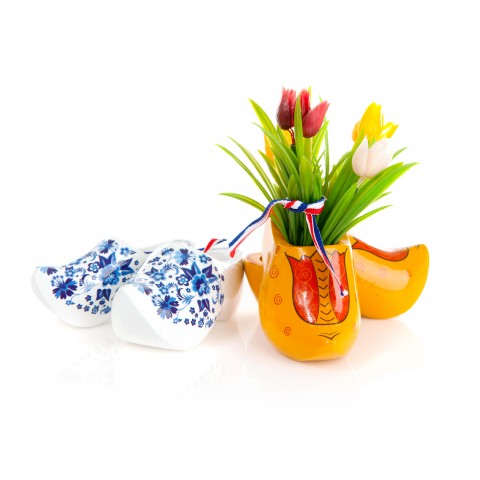




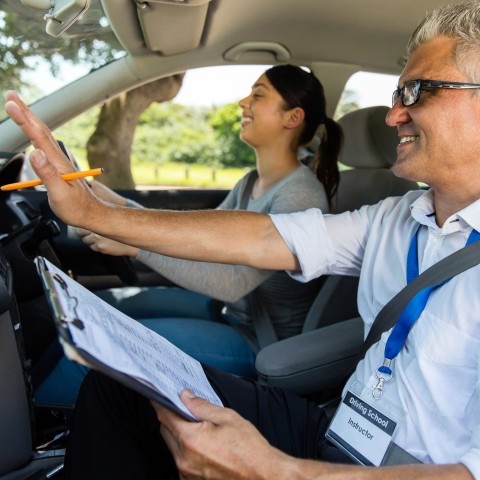










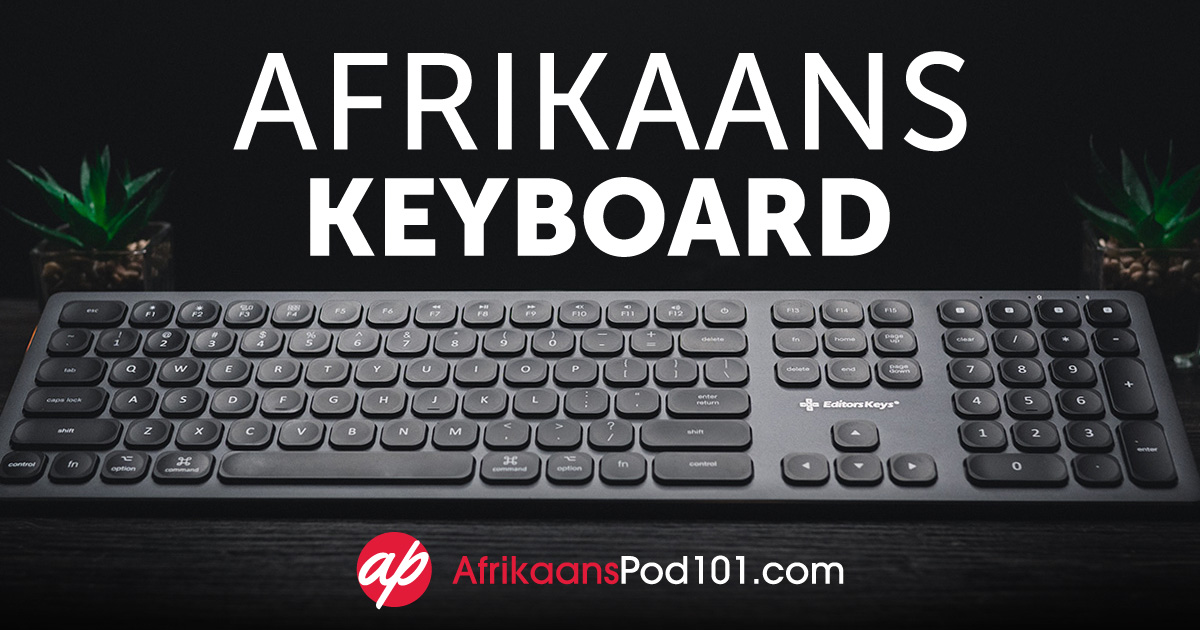
 Table of Contents
Table of Contents
